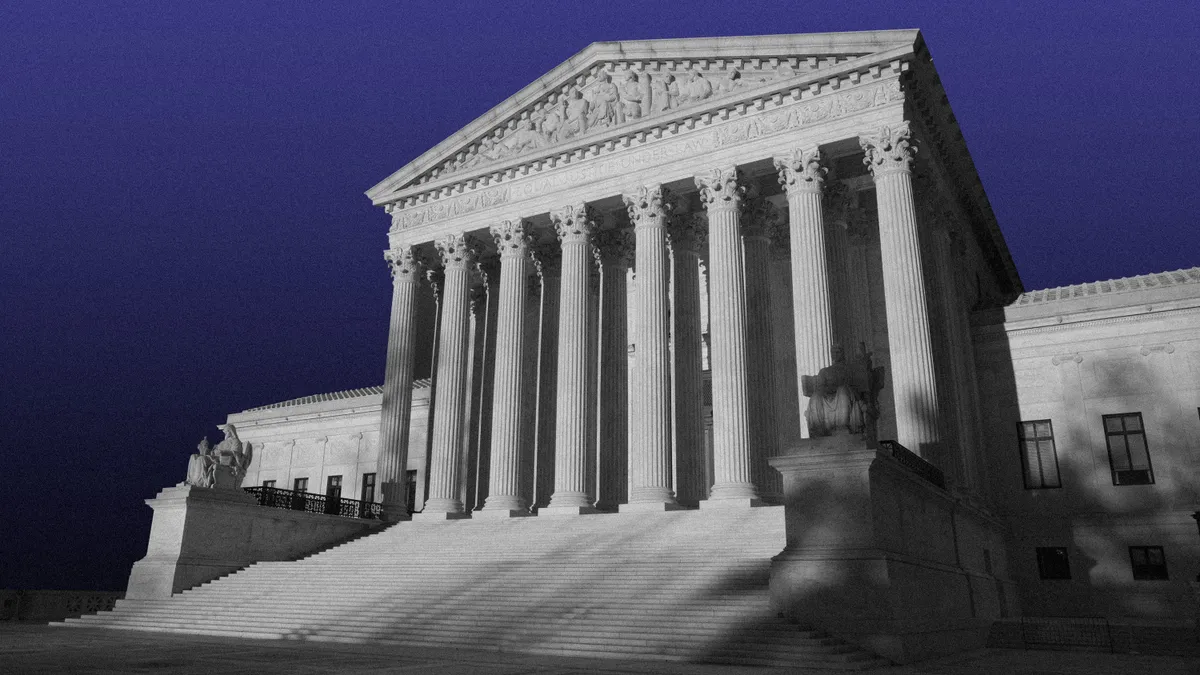Dive Brief:
- The U.S. Supreme Court on Thursday overturned a lower court’s ruling that a strike by the International Brotherhood of Teamsters Local Union No. 174 members employed by concrete provider Glacier Northwest was protected under the National Labor Relations Law.
- In an 8-1 decision (Glacier Northwest, Inc. v. International Brotherhood of Teamsters Local Union No. 174), the high court ruled that because the union knew a work stoppage could cause harm to the company’s product but did not take “reasonable precautions” to prevent it, its activity was not protected by labor law.
- “The parties agree that the NLRA protects the right to strike but that this right is not absolute. The National Labor Relations Board has long taken the position — which the parties accept — that the NLRA does not shield strikers who fail to take “reasonable precautions” to protect their employer’s property from foreseeable, aggravated, and imminent danger due to the sudden cessation of work,” the court wrote in the majority opinion.
Dive Insight:
The ruling, which the union said “opens the door for corporations to sue their own workers,” comes as union activity in the U.S. has spiked.
Between unfair labor charges and union representation petitions, the total number of cases the National Labor Relations Board handled rose 23%, from 16,720 to 20,498, marking the biggest single-year increase in 46 years and the greatest percentage increase in 63 years. In March, the NLRB said FY 2023 is on track to record the second-largest increase in filings since FY 1959.
Teamsters General President Sean O’Brien said the Supreme Court voted “in favor of corporations over working people” and called the ruling “shameful.”
“These corruptible justices should be ashamed of themselves for throwing out long-standing precedent and legislating from the bench. The ability to strike has been on the books for nearly 100 years, and it’s no coincidence that this ruling is coming at a time when workers across the country are fed up and exercising their rights more and more. Make no mistake — this ruling has everything to do with giving companies more power to hobble workers if any attempt is made to fight back against a growing system of corruption,” O’Brien said in a statement.














